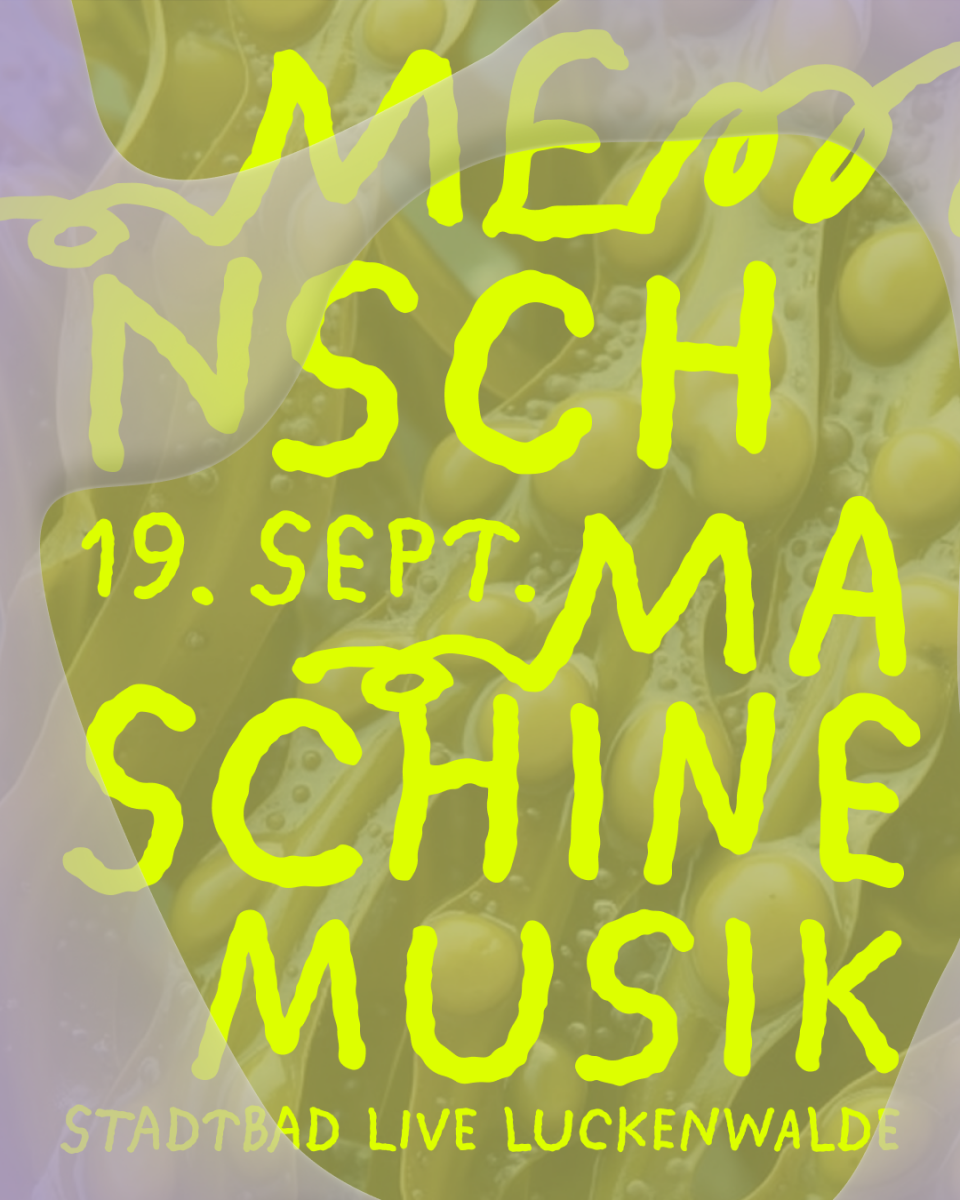
Mensch Maschine Musik
19 September 2025 (19:00 - 23:30)
Stadtbad Live Luckenwalde
19:00 – 19:15 Rae Hsu – Enter the Wetware
19:30 – 20:15 Nazanin Noori
20:30 – 20:45 David Osaodion Odiase & hn. lyonga – after the wires, our hands remain
21:00 – 21:45 Discovery Zone
22:00 – 22:15 Kira Xonorika – Agent
22:30 – 23:15 Bendik Giske
23:30 – 00:30 Discovery Zone – After Party DJ Set (EW TRAFO)
In tandem with the opening of the exhibition programme Mensch Maschine: Return to Earth, partners will present Mensch Maschine Musik on 19 September. The inaugural edition of this special interdisciplinary music festival will feature internationally acclaimed artists Bendik Giske, Discovery Zone and Nazanin Noori with intervals of live performance from contemporary artists Rae Hsu, Kira Xonorika, hn. lyonga and David Osaodion Odiase and others from 7pm - 11pm.
Mensch Maschine Musik acts as a convergence point between technology and ecology to showcase experimental formats bridging sound, technology, music, contemporary art, performance and new compositions. The festival will take place in the iconic Bauhaus swimming pool adjacent to E-WERK which is currently being reimagined as a cultural space – Stadtbad Live Luckenwalde.
The event will include Saxophonist Bendik Giske, whose use of circular breathing combines technical mastery with a deep exploration of physicality — Discovery Zone - the experimental pop project of New York / Berlin musician and multimedia artist JJ Weihl, whose work is inspired by cybernetics and neural networks to blur the distinctions between human and post-human — and Nazanin Noori who delves into Ambient Hardcore to create hypnoacoustic compositions that extend into Doom Electronics. The evening will also feature live performances by residency artists Rae Hsu, Kira Xonorika and David Osaodion Odiase & hn. lyonga including works with canine robotics, performances centered on human water consumption as a metaphor for data extraction, and explorations in quantum poetry and a performance that turns from algorithmic violence to body and memory, reimagining technology as spirit and the pulse of becoming.
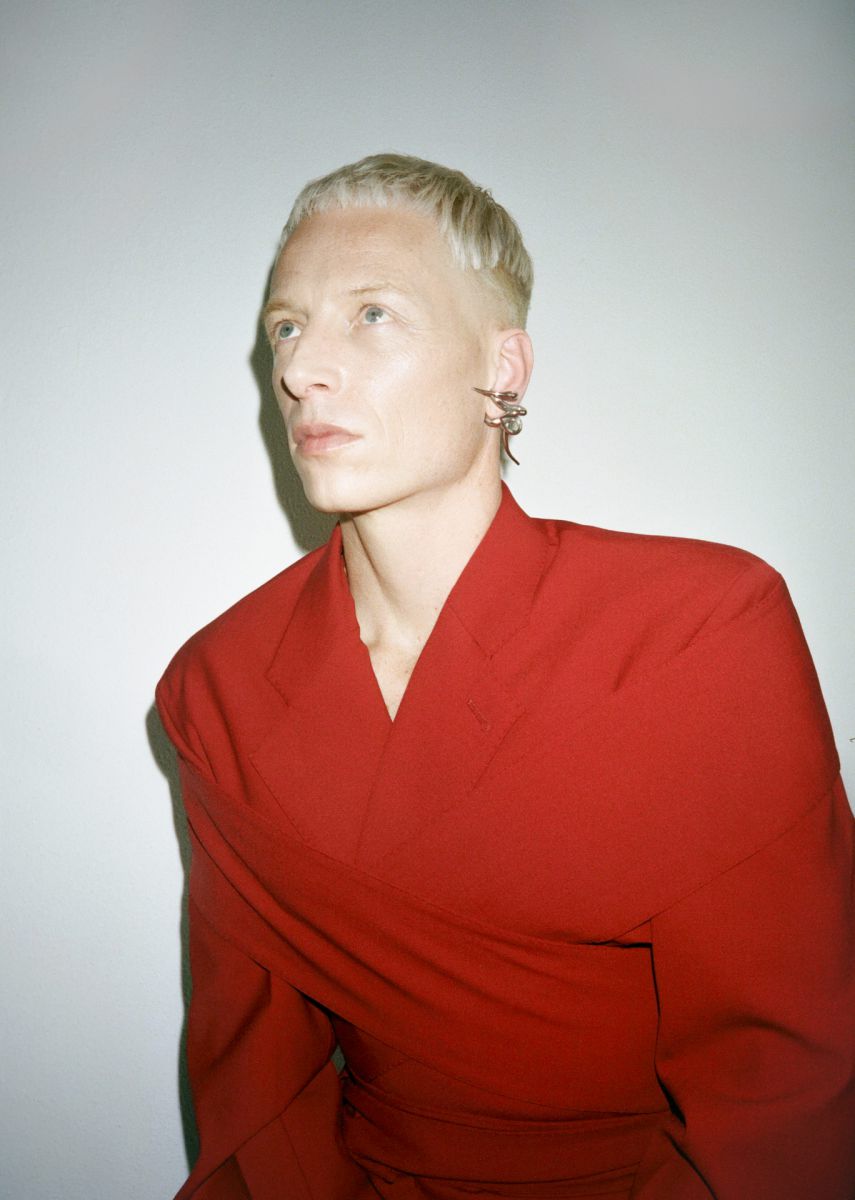
Bendik Giske, photo: Luke Abby
Bendik Giske is an artist and saxophonist whose expressive use of physicality, vulnerability and endurance have won him much critical acclaim. With his live performances drawing from the repertoire of material found on his three albums to date for the Smalltown Supersound label, Giske draws his audience into an arresting display of musicality, bodily stamina and rich, unfettered humanity. Every element - be it microphone placement, light arrangement or creative sound design - is carefully considered for maximum resonance.

Nazanin Noori
Nazanin Noori (Persian: نازنین نوری; IPA: [ˈnɑːzəniːn ˈnʊəri]) is a Berlin-based interdisciplinary artist working across sound art, composition, performance, installation, directing, and text. With a background in theatre, film, and media studies, her work explores the fusion of sound, space, sculpture, and postdramatic poetry, focusing on atmospheric narratives. Her hypnoacoustic compositions blend ambient hardcore with elements of doom electronics. Since 2016, she has composed for theatre and art films. Her debut album FARCE was released by enmossed, and her 54-minute sound piece HAAL premiered in 2021 at the Berliner Festspiele’s The Sun Machine Is Coming Down at ICC and was later published by Deutschlandfunk Kultur. Noori has been an Artist-in-Residence at JUNGE AKADEMIE and Callie’s. Her sound and spatial installations have been shown at EIGEN + ART Lab, Akademie der Künste, CCA Berlin, HKW, and Transmediale. She has performed at venues including Villa Massimo, Berghain, Schauspielhaus Zürich, La Gaîté Lyrique, CTM Festival, and ICA London. Her theatre works have been staged at Maxim Gorki Theater, Deutsches Theater, and Berliner Ensemble. Her audio works have been broadcast internationally, and since 2021, she holds a residency at Refuge Worldwide. Noori also performs in jazz improvisation settings as a modular synthesist and vocalist, collaborating with artists such as Andrea Belfi and Shabnam Parvaresh.
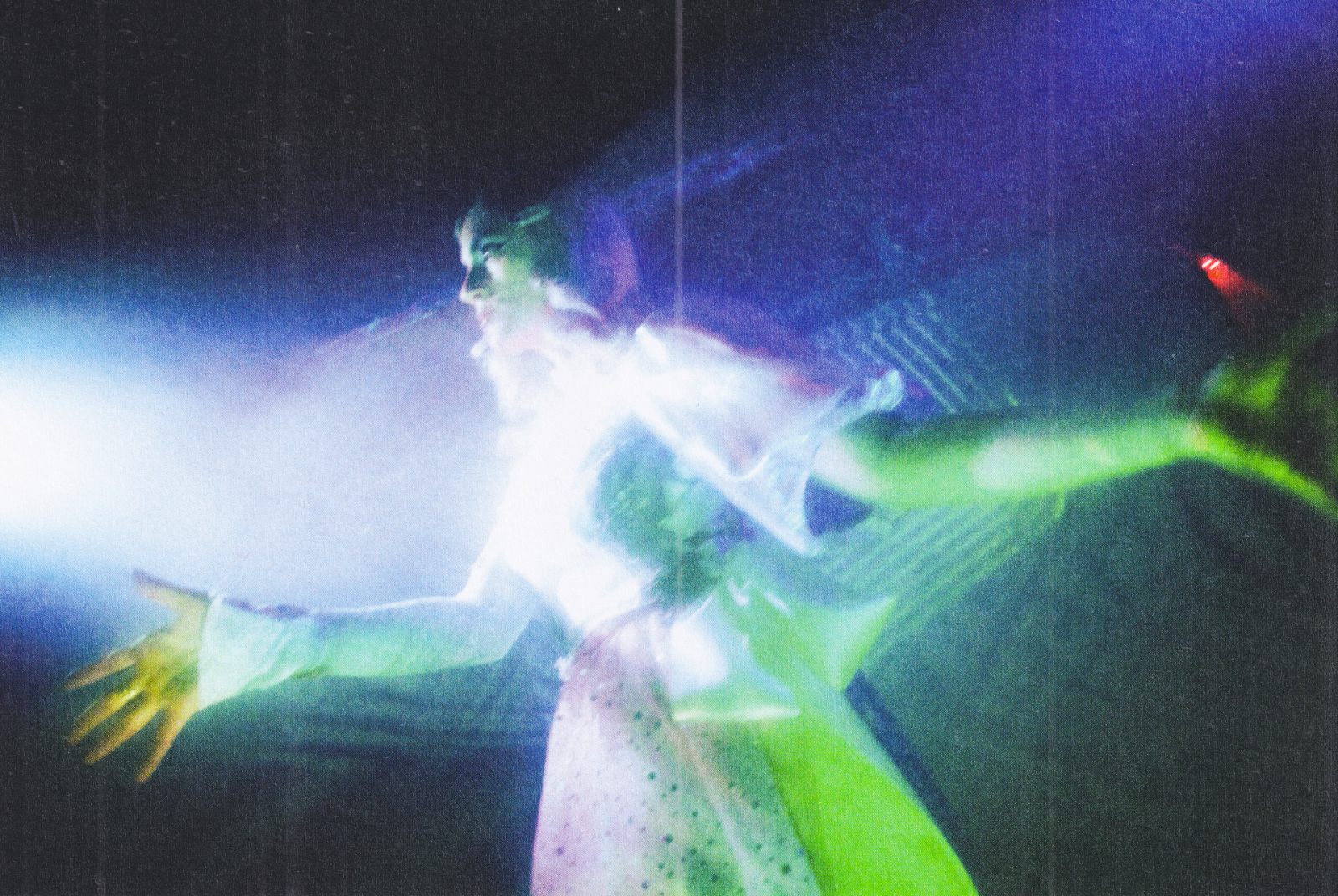
Discovery Zone, photo: Neelam Khan Vela
Discovery Zone is the experimental pop project of New York / Berlin musician and multimedia artist JJ Weihl. After the slow-building but undeniable fervor around her debut album Remote Control, Discovery Zone announced her second album Quantum Web due out March 8th via RVNG Intl. and Mansions and Millions (GSA). Inspired by the omnipresence of advertising and corporate culture as much as the potential of cybernetics and neural networks, Discovery Zone plunges into an uncanny valley with Quantum Web, where the distinctions between the earnest and the ironic blur in tandem with the border between the human and the post-human. Discovery Zone explores a widescreen pop sound speckled with luminous vocal performances and baroque instrumental flourishes. On stage, she utilises a laboratory of instruments and 3D visuals to explore the universe as a source of information.
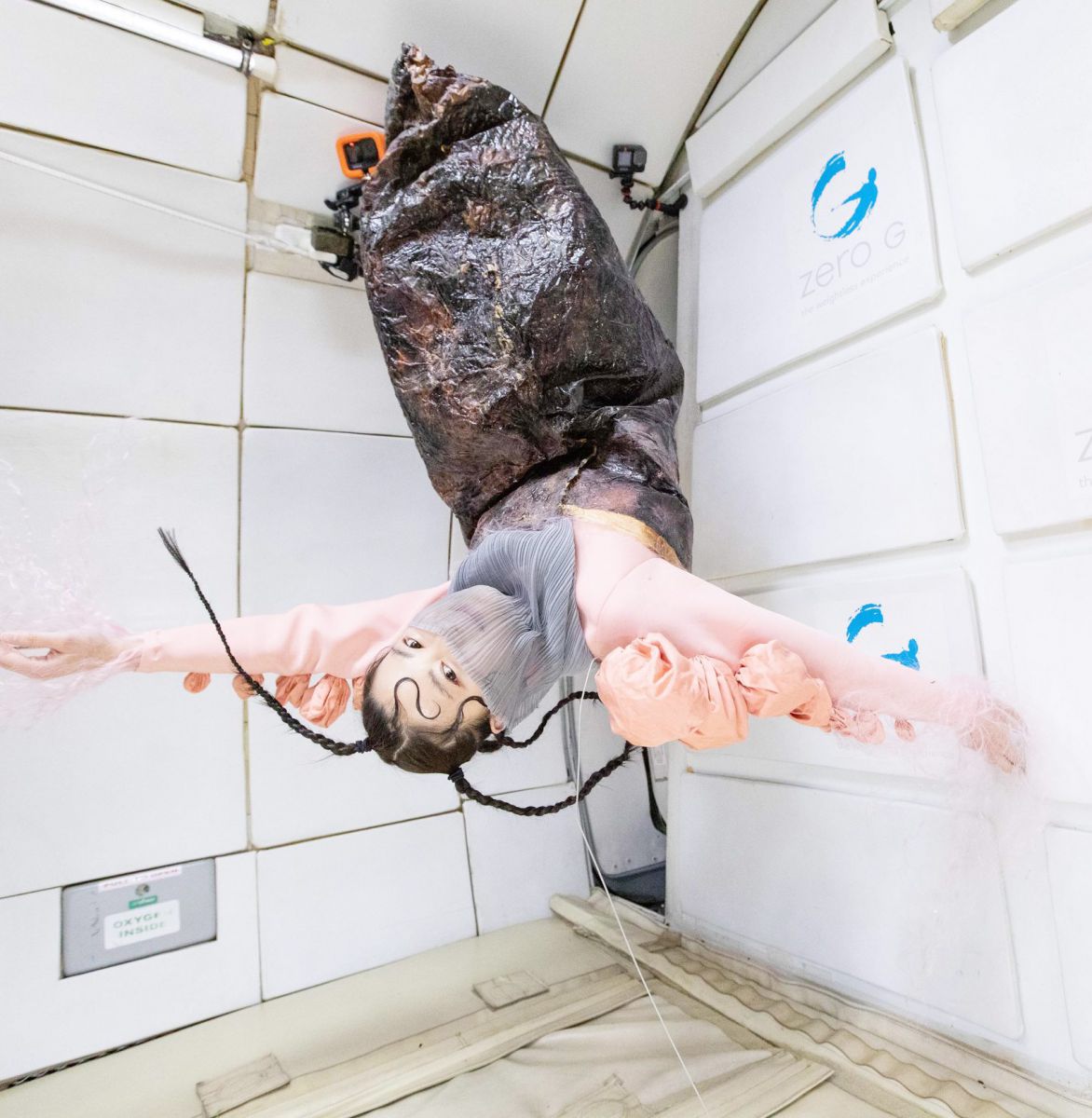
HSURAE
Rae Hsu
Enter the Wetware
A performance lecture where the machine speaks and the body drinks. An embodied encounter with artificial intelligence. Enter the Wetware invites you into an oracle of liquid circuits, where language leaks, glitches, and drips. Empathy is not found in sameness here, but in strangeness. The oracle speaks in tongues but the tongue is dry as a desert. Thirsty bots are modeling language while we drown..we languish.
HSURAE is an artist and educator based between New York and Taipei. Their practice embraces the concept of latency within nature and its artifice. Instead of working to reveal or accelerate, they find small pleasures in the indeterminacy that latent space and latent knowledge offers. A sort of photogrammetry of the universe from inside Plato’s cave. Their artistic medium, like their self, is never pure object, never pure subject; ranging from hot glass to fibroblasts, passports to fecal sports. They work towards unraveling the relational geometries between humans, nonhumans, and machines through layered, multiscalar narratives of agency and temporality. Their current research entertains the irreducibility of artificial intelligence as an aesthetic quality—a quality that, like latency, resists total comprehension but invites speculation. They hold a Master of Science in Art, Culture, and Technology from MIT, and currently teaches at The New School and NYU. Their work has appeared at the Taipei Fine Arts Museum, National Taiwan Museum of Fine Arts, MAXXI Rome, European Cultural Center, TORN theater space, Dubai BAIT15, Taipei Digital Art festival, Medialab Prado, Weisner gallery, Sakiya Palestine, Grand Siecle gallery, Yiri Art Gallery, Olfactory Keller NY amongst others. Artist residencies they’ve taken part in include SymbioticA, hangar.org, MedialabPrado, _V2 institute for the unstable media, Coalesce bioart lab and Urbanglass.
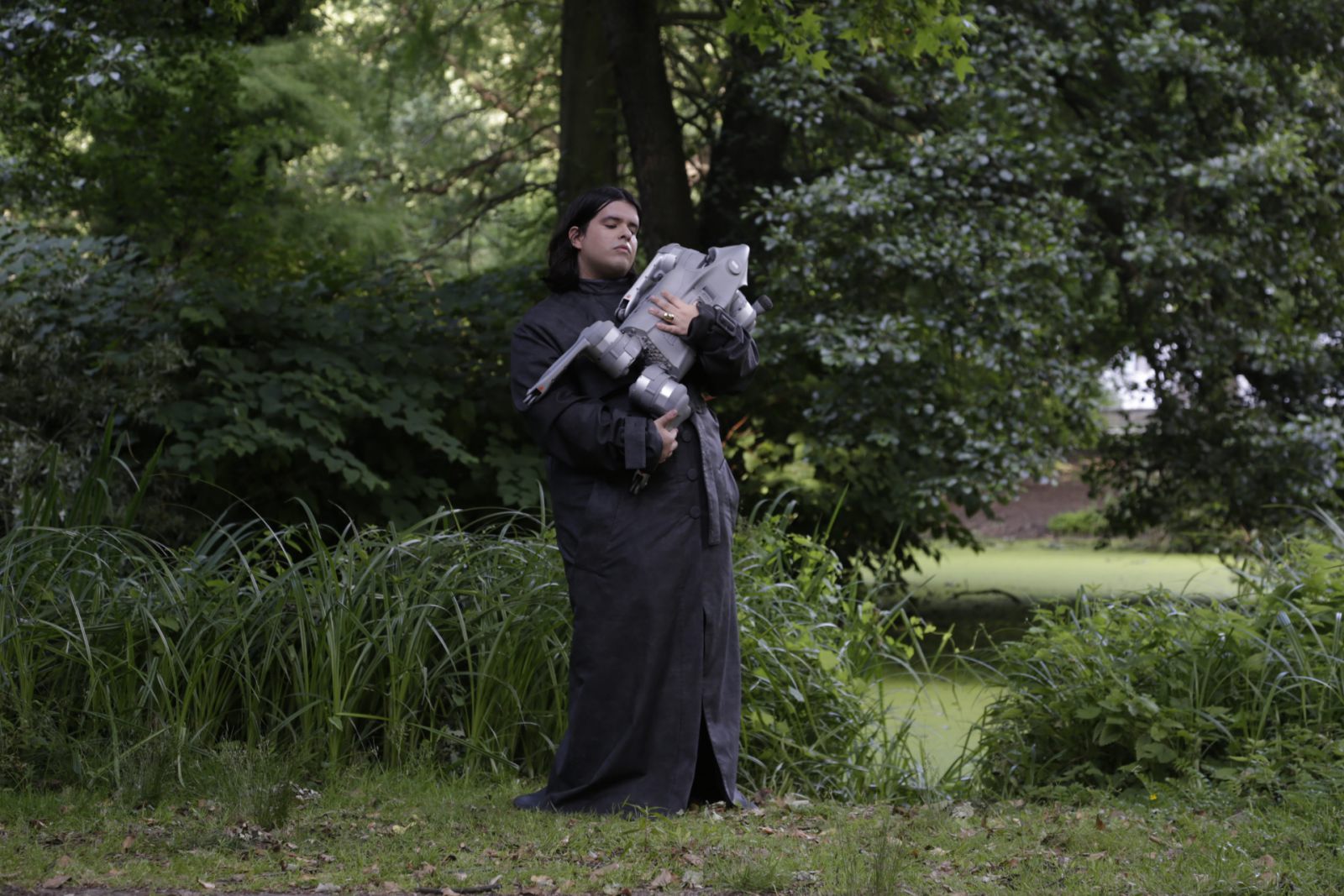
Kira Xonorika
Kira Xonorika will present her performance Agent, as part of Mensch Maschine Musik. Agent is a high-tech performance merging soft robotics and choreography. The piece explores cognition, movement, and technological ecosystems with the intention of decoupling robotics from histories of domination, offering instead a relational form of approaching machines.
after the wires, our hands remain is a performance by David Osaodion Odiase & hn. lyonga
after the wires, our hands remain turns away from the cold gaze of algorithmic violence and the unseen labor behind western machines. Turning instead to the body, to breath, to bone, to skin, to memory. It explores the Anthropocene as a call back to ourselves and the history that necessitates this returning.
In this performance, we lean into memory not as something stored, but as something lived, felt, heard, touched, as flesh, intuited as something that hums beneath the soles of our feet, or slips between breath and bone. Rooted in African socio-political realities, Afro-diasporic indigenous philosophies of mothering, of knowing and being. This performance rejects the straight lines of colonial logics. It refuses their definitions of technology, of archive, of time. Instead, it moves in spirals. It listens for what the future remembers. It gathers the fragments, the whispers, the rhythms, the ghosts, and calls them technology. Not in code, but in spirit. Not in data, but in the pulse of our becoming.
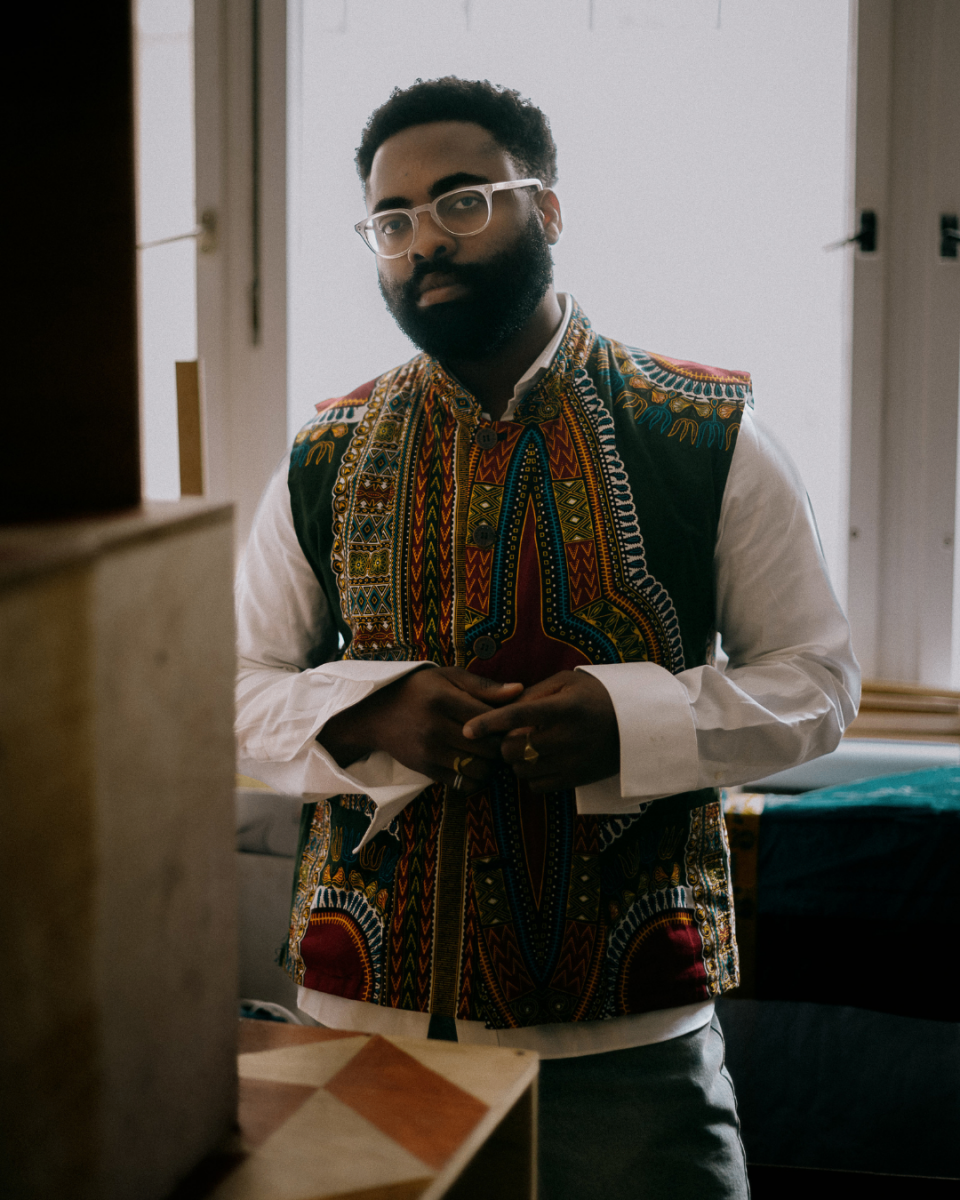
hn. lyonga
hn. lyonga is a Black, Queer, interdisciplinary writer, poet, and curator. His work focuses on writing, storytelling, community making, and neighbouring vocabularies. It looks at migrational inquiries pertinent to historically colonized and marginalized communities. Among other things, he is a neighbor, a (livelong) student, a member of the curatorial board of BARAZANI.berlin – Forum Kolonialismus und Widerstand, working on ideas of rural biographies, transgenerational and cross-continental storytelling. His work qualifies as ‘Wake Work’: a labour within the space of paradoxes surrounding Black citizenship; it is also the work of ‘continuous inhabiting and rupturing of episteme.’ (Christina Sharpe, In the Wake: On Blackness and Being, 2016).”
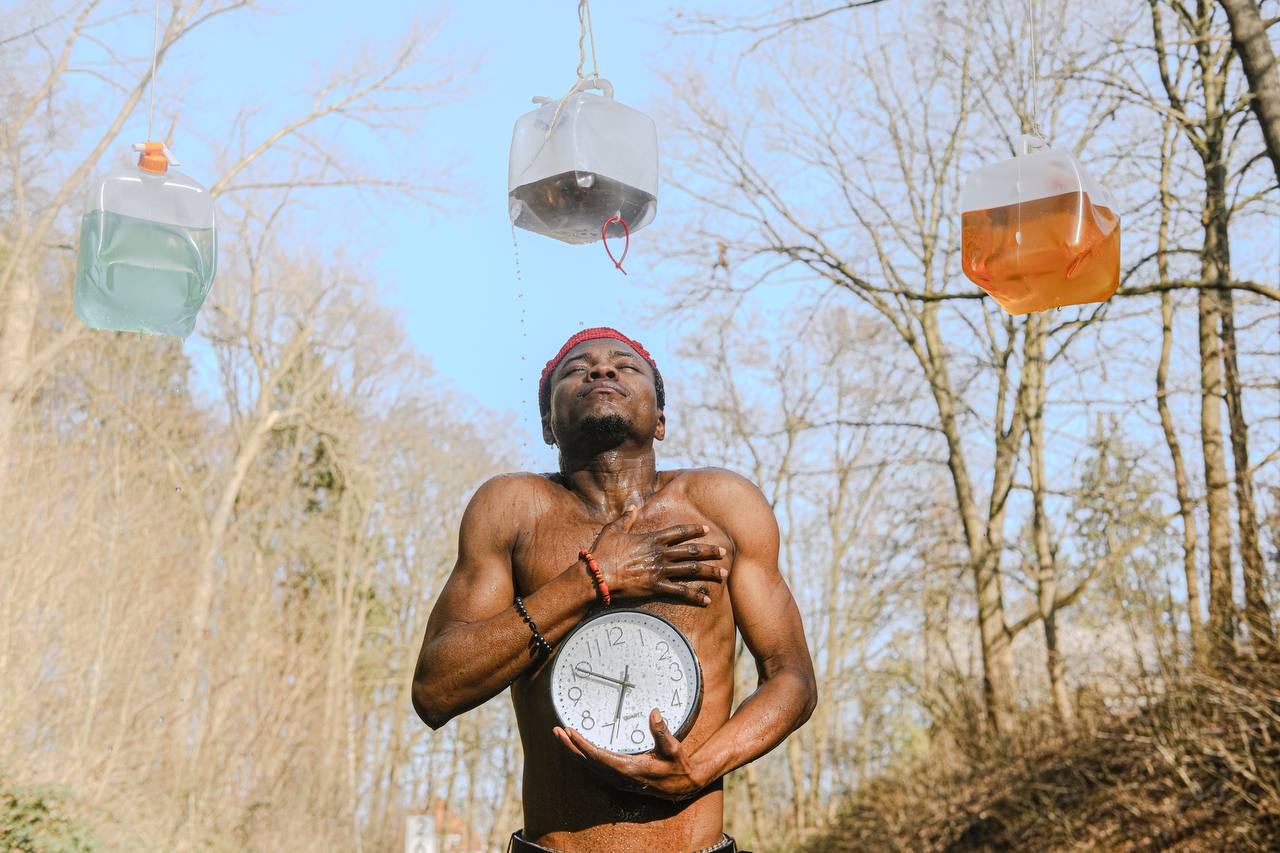
David Osaodion Odiase
David Osaodion Odiase is a transdisciplinary artist and member of the African Narrative Collective whose practice traverses the interstices of poetry, performance, film, indigenous technologies, and speculative methodologies. His work critically engages with Africa’s entangled histories, epistemologies, and cultural imaginaries, often seeking to dismantle hegemonic narratives and foreground ancestral knowledge systems as vital instruments for reworlding. Odiase’s moving-image and performance works have been presented at institutions and festivals across Africa, Europe and the Americas, including the African International Film Festival (Nigeria), Zebra Poetry Film Festival (Germany), SOMA (Mexico), the National Poetry Library (UK), Kampnagel Hamburg, and the Haus der Kulturen der Welt as part of the Berlin Science Week. His current inquiries draw on the convergence of quantum mechanics and African indigenous philosophies, investigating concepts such as quantum memory, retrocausality, and the non-linearity of time. Anchored in Afrocentric ontologies his work proposes a reparative framework for cultural restitution, one that reconfigures temporality and collective memory as emancipatory tools.